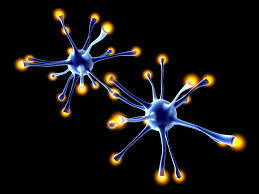Blocking Differentiation is Enough to Give Cells 'Stemness'
Blocking Differentiation is Enough
to Give Cells 'Stemness'
Efforts in the past to create
stem cells have typically involved finding ways to take target cells and
"dedifferentiate" them into multipotent cells, but this is typically
a painstaking process.
According to Tomokatsu Ikawa, the
first and corresponding author of the paper published in Stem Cell Reports,
"We decided to look at the possibility that somatic stem cells could be
maintained in a stem cell-like state where they could proliferate without
undergoing differentiation." To test this, the team took mouse hematopoietic
progenitor cells--cells that give rise to white blood cells--and modified them
to overexpress a protein called Id3. Id3 inhibits the expression of E-proteins,
which are involved in differentiation in somatic cells. They then placed the
cells into culture conditions containing certain cytokines, and instead of
differentiating into B-cells, the cells continued to divide as stem cells. When
placed in a culture that did not contain those cytokines, the cells
differentiated into various immune cells. To test whether the cells would
maintain their multipotency in living animals, the researchers transplanted
them into mice whose white blood cells had been depleted, and showed that the
new cells could expand and differentiate into various types of white blood
cells.
To explore the potential for
application, the group then attempted a similar experiment using human blood
stem cells taken from umbilical cords, which they transfected with a vector
encoding human Id3. They found that like the mouse cells, these human cells
could be maintained in a dividing state and then prompted to differentiate by
changing the conditions.
"With this work we have
succeeded in showing," says Ikawa, "that the cells can be kept in a
state of undifferentiation where they will proliferate extensively. This is
both a useful tool for giving us a better understanding of the genetic and
epigenetic program controlling the self-renewal of stem cells, and on a practical
side, it could allow us to inexpensively produce large numbers of immune cells,
which could then be used for regenerative medicine or immune therapy."




